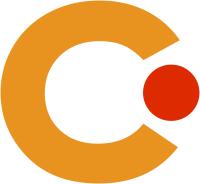Abstract
Welcome to the first Workshop on Software Engineering and Architectures for Realtime Interactive Systems SEARIS. We are delighted to be part of the program of IEEE VR 2008, in Reno, Nevada. These proceedings contain the 15 accepted contributions, which we believe are thought provoking and representative of the current state of the art in designing Virtual and Augmented Reality systems. We are expecting SEARIS to become the premier vent to publish and discuss these systemsâ€related issues, as there is currently no other veenue for these topics.
In previous years, several researchers have organized related workshops and loosely arranged themselves as an unofficial interest group during past events. Their goal was to create a forum where researchers from all directions in the broad field of Virtual and Augmented Reality can contribute and debate their respective technical approaches. This work†mshop provides a faceâ€toâ€face opportunity to further support this emerging project. Several approaches have been developed and utilized in the field of Realtime Interactive Systems RIS. Virtual, Augmented, Virtualized, in general Mixed Realities, as well as real†time simulation and computer games led to manifold inspiring solutions for RIS developments in research and production. However, it is an ongoing challenge to identify and sepa†rate both novel results and well known solutions in any new system. The goal of this workshop is to analyze and structure the current stateâ€ofâ€theâ€art in RIS software engineering and architectures. We want to identify common as well as novel paradigms, concepts, methods, and techniques that support technical developments required in this field. A unified presentation of systems will allow us to support research and development in a more efficient way, and will provide a valuable source of information for future developments. This workshop is ur first integrated attempt to address the complex issue of RIS development and to sum†omarize the work our community is doing.
Arranging the contributions into sections of similar key aspects was a difficult process. Many contributions could be grouped according to several aspects. In fact, it is one of the workshop\u0027s goals to identify such key aspects and many authors are shedding light onto several ey issues. We apologize for any ambiguity here. In the end, we needed a good structure and ence we gr kh ouped the papers into 4 main sections:
* Systems. Six development systems are presented InTml, Lightning, FlowVR, OpenMASK VISTA, and MORGAN
* Abstraction Is †sues. Two papers address the issues of reusable VE platforms and alterna tives to scene graphs.
* Special Issues. In this section we collect papers related to the implementation of RIS in particular platforms, such as mobile systems, multiâ€rate systems, and Mixed Reality.
* Semantic and Dynamic Modeling. The four papers in this section show models for expli†citly describing semantic (i.e. ä chair is on the floor") and dynamic information.
* Semantic and Dynamic Modeling. The four papers in this section show models for expli†citly describing semantic i.e. ä chair is on the floor" and dynamic information.
